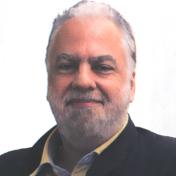Pedro Ferraz de Abreu
Pedro Ferraz de Abreu is a Visiting Scholar at MIT, Coordinator of the e-Planning Consortium, President of CITIDEP, and Researcher at CIAUD, University of Lisbon, where he retired as Full Professor.
As a DUSP PhD student in the late 1990s, Pedro argued that Planners should look at Information Technology not just as a tool for professional efficiency, but also as an area of scientific inquiry, that he called e-Planning, addressing the structural impact of IT in many facets of society. After he graduated, he and Prof. Joseph Ferreira offered together a first "e-Planning Seminar" in 2003. In 2006, as an Invited Full Professor, Pedro founded the "e-planning Consortium" with 4 Universities in Portugal and others in Brazil, and was able to make e-Planning formally recognized in Portugal as a new scientific area, transdisciplinary, for a Joint PhD Program, articulating Engineering with Social Sciences for better e-government, e-governance and e-citizenship.
Pedro is the founder and President of CITIDEP, a world-wide Research Center on Information Technologies for Participatory Democracy, since 1996. Some of his flag research projects (IMS – Intelligent Multimedia System for Public & Technical Consultation; EuroLifeNet – Health – Environment Participatory Science), received considerable public media coverage, given their contribution to publlic policy agendas, and by engaging wide consortia of Research / Education / Civic Action Institutions and hundreds of young participants.
Pedro was also an activist leader, in the Portuguese revolution in 1974 that overturned the 48-year-old Fascist Dictactorsip that was then waging a war against African Liberation Movements in former Portuguese Colonies. Pedro was forced underground for years, being a target of the regime's poltical police. During that time, he collaborated with African leaders such as Amilcar Cabral and Viriato Cruz. He was the founder of an influential highschool movement in Lisbon, MAEESL, that mobilized hundreds of very young students against the dictatorship.
Pedro’s first scientific publication was in Prisma, a student scientific newsletter he directed at the age of 15 – and was later outlawed. His latest book on e-Planning ("e-Planning & Ubiquity", 2021), is multi-lingual (Portuguese and English) with 30 international contributions and was well received in Portugal's Academia. His latest book, "Por Um Mundo Novo, a Sério", lauched on the 50th anniversary of the Portuguese bloodless revolution (April 2024), was received as a landmark; both military principal leaders of the revolution, as well political actors and academics, participated in the book launch and subsequent presentation sessions, still on-going.



